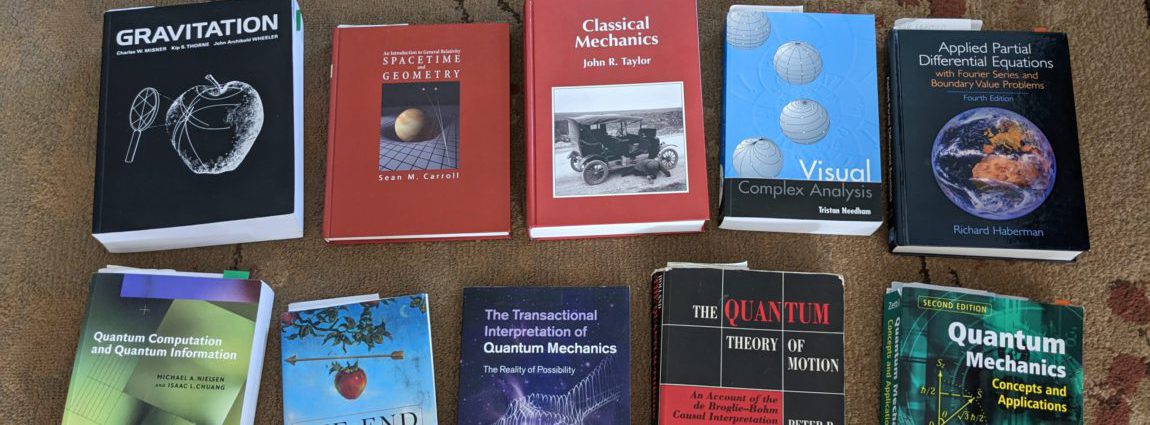This is the tentative study plan. Please feel free to make comments. If you don’t have a login, or don’t want to comment publicly, mail comments/ideas to mike@physicscafe.org.
Part I: Discrete Quantum Theory
The discrete form of quantum theory forms the basis for quantum computing and other quantum information topics. It is fairly easy to learn the basics. The only prerequisite is basic high-school algebra. We can learn the linear algebra as we go.
Most of the people interested in this thread already have some kind of basic knowledge of linear algebra (matrices and vectors) and quantum computing. But we’ll want to review the main elements of the theory.
- Basic linear algebra:
- Complex numbers, the complex plane, complex conjugation.
- Vectors and matrices.
- Inner, outer, and tensor products.
- The postulates of the theory.
- Changes of basis
- Entanglement
- Quantum Teleportation (as an application of the above)
If you don’t happen to have a quantum information book you like, these notes summarize most of the concepts we’ll need.
Part II: Transition to the continuous theory
The continuous theory is what we can quantum mechanics. At an abstract level it is the same as the discrete theory. But when you work out a problem quantitatively it requires a lot more math. This is why having a handle on the (relatively simple) discrete theory, and seeing the parallels, provides a good basis for understanding QM
A knowledge of calculus and differential equations is necessary to be able to work quantitatively with QM. But we’ll try to provide enough in the way of analogies with the discrete theory that people who are weak in these areas can at least understand what’s going on at a conceptual level (and perhaps work out the numbers on their computer).
This chart attempts to summarize the “transition.”
Perhaps it would be a good idea to “warm up” with something like the heat equation (as a first look at differential equations) before we go on to QM proper?
Part III: Quantum Mechanics
- Basics of the Schrödinger Equation
- The Wave Function and probabilities
- Some basic one dimensional position problems
- Infinite Well
- Free Particle
- Finite Step
- The Harmonic Oscillator
- (More to come …)
